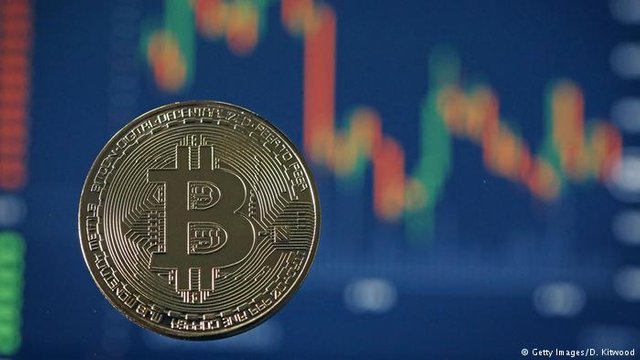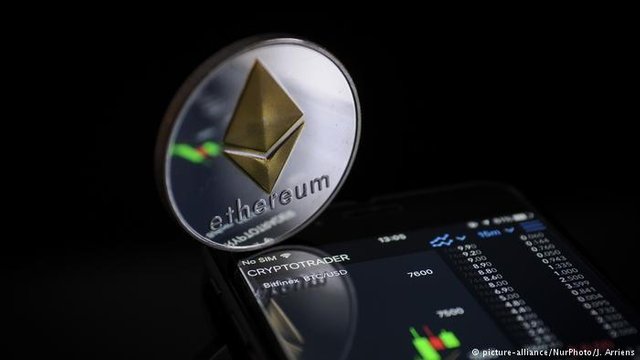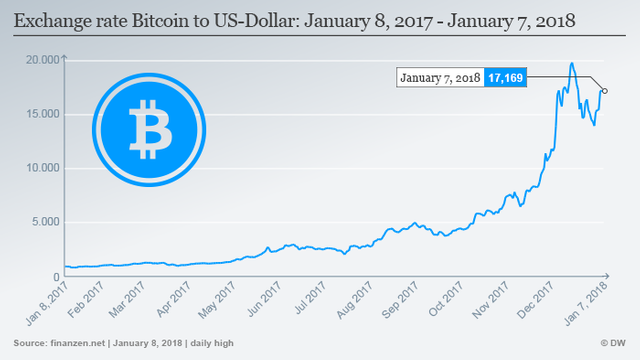Initial coin offerings
There's a new trend that showcases the way digital currencies can be mobilized as an alternative avenue for funding, in ways that traditional tender cannot. Jack Flanagan takes a closer look at how that works.

The startling increase in the value of Bitcoin has re-energized speculation of whether or not the currency has a future, or is just a fintech bubble. In either case, digital currencies continue to grow and diversify, offering new opportunities and fertile ground for innovation.
Besides Bitcoin, most prevalent in 2017 was the emergence of the ICO (Initial Coin Offering). This new trend showcases the way digital currencies can be mobilized as an alternative avenue for funding, in ways that traditional tender cannot, and how fruitful that can be.
At this point in time, ICOs have been used in two ways. In the first scenario, a limited number of so-called "altcoins" are traded for legal tender or cryptocurrency, like Bitcoin or Ether. Each time a coin is bought, it further drives up their value. Investors are hoping as many coins are bought as possible and the company thrives, in the hopes of selling the coins later.
In this way, the coins seem to function as regular stock. However, they have an extra advantage, which is that they allow entrepreneurs to cast a much wider net in their search for investment, and not to be limited to traditional financing.
Going beyond crowdfunding
Furthermore, unlike crowdfunding, ownership of these assets especially incentivizes investors to spread the word about the company, in order to increase the value. At the moment, these investors largely come from within the cryptocurrency community.
The exact nature of the coins may vary depending on the company. ICOs may offer a limited number of coins, or make the coins only last over a set period.
The other function, which may be termed "utility tokens" or "coins," are traded specifically on business platforms. Investors may use these tokens to purchase the company's goods or services, or retain the coins, in the hope that they will grow in value. Companies benefit from such an economy: retaining coins increases their value by lowering the number on the market, further driving up their value.
Troy Norcross, director of Blockchain Rookies, which offers strategic consulting on this topic, uses a laundromat analogy to give a bit of clarity. Laundromats in the US are often coin-operated. The coins are purchased with US dollars, but only have one function: to be used in the machines.
Theoretically, if you were to buy a lot of coins, the number in circulation would shrink: this would then increase their value. Ideally, for you the investor, the laundromat company would also build more laundromats, further increasing the value of your coins (and your potential for profit).
Tokens for cloud storage space
STORJ, in the US, operates in this way, except, instead of clothes washing, they offer cloud storage space and Storj Tokens with which to rent it. If you offer your own computer hardware for the service to use as data storage, you are paid in these tokens, which accumulate in the value the more it's used.

Ether is a token in a network computing system (Ethereum) which allows the cryptocurrency to actually be used in traded
Finally, it is the blockchain, the technology most often linked to Bitcoin, which attracts startups, hungry for funding. More than half of ICOs have taken place over the Ethereum blockchain, which features smart contracts that execute once certain conditions are met, making it ideal for the exchange of currency in speculative situations.
Each contract is public, and therefore the community is witness to any transaction that takes place. This safety, and the promise of progress and development, is a key motivator for adopters.
These features aside, ICOs are attractive to small businesses because they bypass many of the traditional hurdles to funding: they don't require angel investors or venture capitalists, who typically ask for equity or a place on the board. This appeals to entrepreneurs protective of their idea, and concerned that "too many cooks spoil the broth." However, it is exactly this that has encouraged some other observers to be skeptical.
The explosion of popularity in ICOs has encouraged rumors of a bubble. While there had been some early coin offerings, notably Ethereum in 2014, which raised 3,700 Bitcoin, the second half of 2017 saw a frenzied activity as entrepreneurs and investors latched onto the potential of this idea. For example, in September, instant messaging app developer Kik raised almost $100m (€82.9m) with an ICO. Over that period, more than 400 ICOs have been conducted, and $2.3billion raised. Such a flurry of activity, and vast movements of money in a relatively small community, has observers worried of a sudden collapse.
Criminal energy
There have also been concerns over scams. On the Etherium blockchain, according to Cointelegraph, one in 10 transactions are scams, which they discuss as "phishing, Ponzi schemes," or otherwise. That number, it's worth pointing out, is roughly the same as for Bitcoin, which has a global average of 9.49 percent (Kaspersky, 2017).
Phishing on a blockchain means using standard scams, like phony "lost password" emails, to obtain private keys for the blockchain, which then funnel coins to the hacker's wallet. It can also mean sending a false website, where an investor inputs their crypto details, which are then lost to the scammer. This is avoided by having many different wallets: some for exchanges and payments, and wallets for holding currency.

However, if someone on the chain is hacked, they have little recourse. The decentralized and largely unregulated nature of digital currencies, which is a major part of their appeal, leaves victims with few or no ways of responding after an attack. That is part of the regulatory mission now of governmental financial bodies (and, indeed, the digital currencies community). For example, the Securities and Exchange Commission in the US is currently working on guidelines and information to help educated investors.
Other countries have simply banned ICOs until proper regulation is up and running: China and South Korea, for instance. In other countries like the United Arab Emirates and France, 2017 saw guidelines or placeholder regulations rolled out to make things safer for investors.
In Germany, at the moment, it's unclear whether or not current legislation applies. Some laws there regulate digital currency and the transfer of legal tender or e-money, but neither directly affects an ICO in Germany. However, an ICO may require a prospectus for its tokens, under regulation of financial securities though this depends on the nature of the coin, for instance, if the investor receives dividends.
Despite these problems, the digital currencies community remains confident. Norcross reports that an influx of enthusiastic investors earlier in 2017 showcased the notable flaws in an ICO: lack of guidelines, legal recourse and, perhaps fundamentally, the expertise of angel investors and institutional capital.
Investment in some companies hit a snag where, afterward, it became apparent the idea itself was not grounded in reality, or the team was inexperienced. In which circumstances, the expertise in traditional financial circles would have been more valuable than the no-strings-attached finance of an ICO.
Yet Norcross is optimistic about the future. "In my particular view, there are, in theory, a lot of companies that could do an ICO well. If the technology is legitimate, and the company naturally operates in the blockchain space, they will do absolutely fine. The feeding frenzy of 2017 has let the air out of the bubble and we're starting to see the market stabilize. More regulation will further improve the situation for everybody. The early days, where we could raise 5 million in 30 days without due diligence, are gone."
www.dw.com